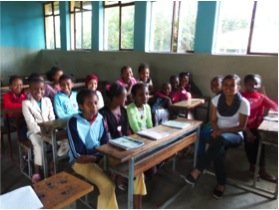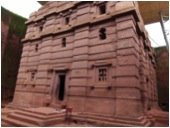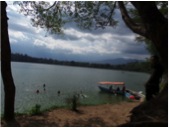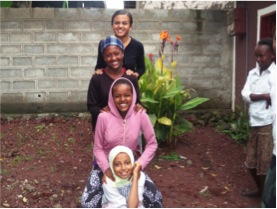
Unlike my fellow volunteers (one had to pay a hefty tax for importing new sporting equipment into the country and another wasn’t allowed through immigration due to a visa misunderstanding and so within a couple of hours of her arrival in Ethiopia was on a plane back home!) my arrival in Addis Ababa was fortunately uneventful. I did have to wait for over an hour to collect my luggage and then another hour for my host to collect me from the airport. But I was soon to learn that Ethiopian culture requires patience and so this was a character trait that I was soon to develop in abundance.
Addis Ababa was pretty much what I expected from an African capital city: generally dusty, chaotic and full of people. There was a lot of construction occurring on roads, railways and buildings, mainly financed by Chinese multinational companies, which added to the chaos and dust. But what struck me was the kindness and willingness to offer help of the Ethiopian people. For example, children as young as eight eagerly offered not to pull but carry my 20 kg suitcase from the walk from the airport to the local taxi park. As I was soon to discover, this kindness would remain a common trait in all Ethiopian people that I would encounter throughout my journey in the country.
I lived in a small town called Bishoftu. Goats’ heads being sold on the side of the road for guard dogs to eat, farm animals freely roaming the streets, and homes and shops made from mud and tin was the norm in Bishoftu. I quickly adjusted to life in there and learnt that Ethiopia has other interesting quirks. For instance, the Ethiopian year is 7 years behind ours (it is currently 2005 in Ethiopia), the calendar has twelve 30 day months and a 13th month of either 5 or 6 days. On the clock, AM is daylight hours and PM is night-time hours; 6am western time is 12am Ethiopian, noon western time is 6am Ethiopian, and midnight western time is 6 pm Ethiopian. When talking, Ethiopians use a strange inhaling gasping noise to signal agreement or to kind of ask if you understand.
Prior to my arrival in Ethiopia, I had never taught. So as you can imagine, on my first day standing in front of a class of 21 curious and excited 12 year olds, I was nervous. But these nerves soon vanished due to the enthusiasm and willingness to learn of the children. I taught them English pronunciation, sentence structure and the tenses. After lessons, they walked the 30 minute walk home with me, teaching me Amharic, game after game, and Ethiopian history – of which they were all very proud.
As a volunteer, my schedule consisted of teaching Monday to Thursday, which left me with a long weekend. I used this as an opportunity to travel and explore not only Bishoftu and its seven crater lakes, but the rest of Ethiopia. I travelled to the northern Ethiopiantown of Lalibela to see the rock-hewn underground churches. They were remarkable.



Each is carved from a single rock and so beautifully decorated; it was easy to understand why the locals believed them to be built by angels. Other weekends were spent climbing a nearby mountain called Black Mountain, planting trees with the local high school children, and painting the walls of one of the bedrooms in the Link Ethiopia office compound.
Initially, the thought of spending ten weeks in Ethiopia felt like a lifetime, but before I knew it my last day of teaching arrived. I prepared a ‘fun’ lesson for the kids, consisting of an array of games we had taught one another over the past 2 months. So I arrived at the school gate and immediately was mobbed by my students, all shouting “Teacher, teacher we have a surprise for you”. I let the children lead me to the classroom and instantly I noticed the messages each student had written on the blackboard; “Welcome to our compound Grace!”, “We will miss you”, “Thank You”, were just a few of the messages. Each student then gave a speech, I gave a speech and we took some customary photos together. We then proceeded to spend the rest of the morning playing gamesand singing songs. When it was time to leave, I walked the children to the gate, said my goodbyes and went back to an empty classroom to collect my bags before heading back to the gate. To my shock I saw nine of my students standing at the gate with tears foaming in their little eyes. It was then when I realised that not only had I helped the children improve their English, but I had also impacted their lives in other positive ways, as they had done with me.
Without a doubt, choosing to volunteer in Ethiopia was one of the best decisions of my life, as not only did it provide me with an unforgettable experience, but living in Ethiopia taught me numerous life lessons, which I will treasure. What I took away was the immense value that Ethiopians place on the greater community and I hope to do the same back home here in England.

Until next time, Ethiopia – Thank You.